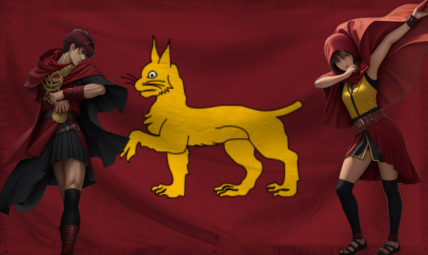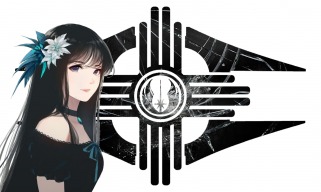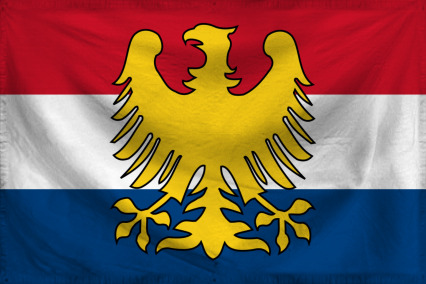There have been many similar indices, though none seem to be active at the moment. Hence, the government of Plaetopia has elaborated its very own Democracy and Freedom Index, based on several indices seen both in the Multiverse and in Real Life Earth. Nations are assessed based on 4 different categories plus an additional optional one, and classified in 5 categories based on the conduct and integrity of elections, separation of powers, the adequate functioning of the government, civil liberties enjoyed by the population, and legal equality or discrimination based on gender, religion, ethnicity or any similar grounds.
The Questionnaire
Please fill the following questionnaire to get your nation assessed:
- Code: Select all
ELECTIONS
[b]How was the head of state and the head of government (or other chief national authority) selected?[/b]
[b]How is the national legislature selected?[/b]
[b]Are elections considered free and fair?[/b]
[b]Which was the average turnout in recent elections? Is voting mandatory?[/b]
SEPARATION OF POWERS AND FUNCTIONING OF GOVERNMENT
[b]In case national representatives were freely elected, are they able to succesfully develop and implement new policies? Does government authority extend over the full national territory?[/b]
[b]Does the legislature have the legislative initiative? What restrictions are placed on its ability to pass laws, including constitutional amendments?[/b]
[b]Is the executive able to subvert the legislature through legal or extralegal means (such as arbitrary dissolutions, lack of an adequate budget, or strong limits on legislature's powers)?[/b]
[b]From 1-10, how pervasive is corruption?[/b] [i](Small explanation appreciated)[/i]
[b]From 1-10, how transparent is government activity?[/b] [i](Small explanation appreciated)[/i]
[b]Is there an independent judiciary?[/b]
CIVIL LIBERTIES
[b]Is there an independent media?[/b]
[b]Is there freedom of religion?[/b]
[b]Is education free of political interference or indoctrination?[/b]
[b]Are citizens able to express dissent in practice, without fearing retribution?[/b]
[b]Is there freedom of assembly? Are peaceful protests allowed, and are they able to proceed in practice?[/b]
[b]Are there basic guarantees of due process, and are they upheld in practice?[/b]
[b]Do individuals enjoy freedom of movement inside the country and of international travel, including in education, residence or employment?[/b]
[b]Do individuals enjoy basic social freedoms (do they have control over appearence? are they able to freely choose marriage partners and size of family? how common is domestic violence?)?[/b]
[b]Are individuals able to freely set up their own business? Are property rights adequately protected?[/b]
PARTICIPATION AND GUARANTEES OF EQUALITY
[b]How is citizenship determined?[/b]
[b]Who is able to vote in elections?[/b]
[b]Are different segments of the population (men, women, the LGBT community, ethnic minorities...) treated equally?[/b]
[b]Are the above groups well represented in government?[/b]
OPTIONAL ADDITIONAL QUESTIONS
[b]Are the government or nonstate groups deliberately and systematically changing the demographics of the country so as to dilute or eliminate a particular group?[/b]
[hr][/hr]
[b]Any suggestions for future editions of the index?[/b]
To assess a particular country, a decimal score ranging from 0 to 1 will be assigned to every question based on the responses and then divided by the number of questions to get the average. Finally, it will be multiplied by 10 to get a score ranging from 0 to 10. In case of the optional additional question, the score assigned will range from -1 to 0.
Classification
Nations will be classified in 5 categories based on their score:
Free (score 8-10): a government truly committed to political pluralism and representative rule. Elections are free and fair, the opposition is meaningful and has realistic opportunities to gain power, the rights of minorities are guaranteed, civil rights are respected and the government is mostly transparent, able to rule as mandated by voters and is corruption-free. Any gaps on political freedom and civil liberties are minor.
Mostly Free (score 6-8): while the government is generally committed to representative rule, there are important deficiencies such as concentration of power by ruling elites, unchecked corruption, or discrimination against vulnerable groups. The government is more democratic than not and there is hope of further reform and improvement.
Partly Free (score 4-6): a regime with both democratic and authoritarian characteristics, nations in this category are generally unstable transition governments. Problems in flawed democracies are more serious, and the government is likely to slide into authoritarian rule if there is not sustained pressure from civil society and citizens to mantain and carry on with democratic reforms.
Mostly Unfree (score 2-4): the government in nations in this category are not truly committed to political pluralism and seek to consolidate power, but some democratic elements persist regardless. Corruption may be pervasive or government authority may not extend over the entire national territory. However, authorities are still willing to give the population some limited concessions, such as autonomy for minority groups or limited displays of dissent.
Not Free (score 0-2): nations in this category are authoritarian police states that allow few to no opportunities for legitimate regime change, or have descended into internal chaos and civil war. Citizens are unable to exercise basic civil rights, severe repression is routine, and the government often controls most economic activity.
A country is placed on the highest category possible, i.e. a country with a score of exactly 8 is Free, while a country with a score of exactly 4 is Partly Free.
Reports
50 Nation Report
100 Nation Report
Next planned report: 200 Nations











